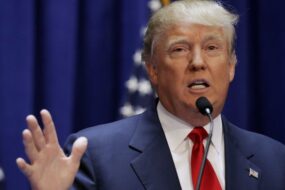
Introduction
In a significant political victory, Argentina has passed a sweeping economic reform bill championed by the newly elected President Javier Milei. This landmark legislation marks Milei’s first major legislative achievement and signals a bold new direction for Argentina’s economic policy. The reforms are aimed at addressing long-standing economic challenges, including inflation, fiscal deficits, and structural inefficiencies. This article delves into the details of the economic reform bill, its potential impact on Argentina’s economy, and the political implications for Milei’s administration.
Background on Argentina’s Economic Challenges
Argentina has faced persistent economic difficulties over the past decades, characterized by high inflation, frequent currency devaluations, and significant fiscal deficits. These issues have undermined economic stability and growth, leading to periodic financial crises. The need for comprehensive economic reforms has been a point of contention in Argentine politics, with previous administrations struggling to implement lasting solutions.
Javier Milei’s Rise to Power
Javier Milei, an economist and libertarian politician, rose to prominence with a platform centered on free-market principles and radical economic reforms. His election campaign focused on reducing the size of government, cutting public spending, and implementing pro-market policies to spur economic growth. Milei’s victory in the presidential election signaled a shift in the political landscape, with voters seeking bold solutions to Argentina’s economic woes.
Key Provisions of the Economic Reform Bill
The economic reform bill passed under Milei’s leadership includes several key provisions aimed at transforming Argentina’s economic landscape:
1. Fiscal Austerity Measures
The bill introduces significant fiscal austerity measures to reduce the budget deficit. This includes cuts to public spending, reforms to social welfare programs, and efforts to streamline government operations. The goal is to achieve a more balanced budget and reduce the reliance on borrowing.
2. Tax Reforms
To stimulate economic activity and attract investment, the bill includes comprehensive tax reforms. These measures involve lowering corporate tax rates, simplifying the tax code, and introducing incentives for businesses to invest in Argentina. The reforms aim to create a more business-friendly environment and boost economic growth.
3. Deregulation
The bill seeks to reduce bureaucratic red tape and deregulate various sectors of the economy. By removing unnecessary regulations and barriers to entry, the government hopes to encourage entrepreneurship and innovation. This includes reforms in the labor market, aimed at increasing flexibility and reducing costs for employers.
4. Monetary Policy Changes
To tackle high inflation, the bill includes changes to monetary policy. This involves measures to strengthen the independence of the central bank and implement a more disciplined approach to managing the money supply. The goal is to stabilize the currency and restore confidence in the financial system.
5. Privatization of State-Owned Enterprises
The bill outlines plans for the privatization of several state-owned enterprises. By transferring ownership to the private sector, the government aims to improve efficiency, reduce public spending, and generate revenue. The privatization efforts are expected to attract foreign investment and enhance competitiveness.
Potential Impact on Argentina’s Economy

The passage of the economic reform bill is poised to have a profound impact on Argentina’s economy. While the measures are ambitious and have the potential to address some of the country’s deep-rooted economic issues, they also come with risks and challenges:
1. Inflation Control
The reforms’ success in controlling inflation will be crucial. By implementing stricter monetary policies and fiscal discipline, the government aims to bring down inflation rates. A stable inflation rate could improve purchasing power and economic stability.
2. Economic Growth
The tax reforms and deregulation measures are designed to stimulate economic growth. By creating a more favorable business environment, the government hopes to attract investment and spur job creation. However, the effectiveness of these measures will depend on their implementation and the response from the private sector.
3. Public Reaction
The austerity measures and cuts to social welfare programs may face resistance from the public. While fiscal discipline is necessary, the government will need to manage public sentiment and ensure that vulnerable populations are protected.
4. Foreign Investment
The privatization of state-owned enterprises and pro-market policies are expected to attract foreign investment. Increased investment can lead to technological advancements, improved infrastructure, and greater economic productivity.
Political Implications for Milei’s Administration
The passage of the economic reform bill represents a significant political victory for President Milei and his administration. However, it also sets the stage for future political challenges:
1. Strengthening Political Capital
Successfully passing the reform bill strengthens Milei’s political capital and demonstrates his ability to deliver on campaign promises. This achievement could bolster his support base and provide momentum for further reforms.
2. Managing Opposition
Milei’s reforms are likely to face opposition from political rivals, labor unions, and other interest groups. Managing this opposition and building consensus will be critical for the successful implementation of the reforms.
3. Long-Term Vision
The reforms align with Milei’s long-term vision of a more market-oriented economy. However, achieving sustainable economic growth and stability will require ongoing efforts and adjustments to the reform agenda.
FAQs
1. What is the economic reform bill that Argentina recently passed?
The economic reform bill passed by Argentina includes comprehensive measures aimed at stabilizing the economy, reducing inflation, and encouraging foreign investment. The reforms focus on fiscal policy adjustments, tax reforms, deregulation of certain industries, and measures to enhance transparency and efficiency in public spending.
2. Who is Javier Milei, and what role did he play in this legislative win?
Javier Milei is a prominent Argentine economist and politician known for his libertarian views and advocacy for free-market policies. As a member of the legislature, Milei played a crucial role in pushing for the economic reform bill. His ability to garner support for the bill represents his first significant legislative achievement.
3. What are the main components of the economic reform bill?
The main components of the bill include:
- Tax reforms aimed at simplifying the tax code and reducing tax evasion.
- Measures to control inflation by tightening fiscal policy.
- Deregulation initiatives to remove bureaucratic hurdles for businesses.
- Strategies to attract foreign investment, including incentives and protection measures.
- Enhancements in public spending transparency and efficiency.
4. How is the economic reform bill expected to impact Argentina’s economy?
The bill is expected to have several positive impacts, including:
- Stabilization of the economy through better fiscal management.
- Reduction in inflation rates, leading to increased purchasing power for citizens.
- Improved business environment, fostering both domestic and foreign investments.
- Enhanced public trust in government spending through increased transparency.
5. What challenges does the economic reform bill face in implementation?
The implementation of the bill faces several challenges, such as:
- Potential resistance from various interest groups affected by the reforms.
- The need for robust administrative mechanisms to ensure effective implementation.
- Economic uncertainties that might hinder the expected outcomes.
- The necessity for continuous political support to sustain the momentum of the reforms.
6. How has the public reacted to the passing of the economic reform bill?
Public reaction has been mixed. While some segments of the population and business community have welcomed the reforms, seeing them as necessary steps towards economic stability and growth, others have expressed concerns over the potential short-term hardships and the impact on social welfare programs.
7. What are the next steps following the passage of the economic reform bill?
The next steps involve the detailed planning and execution of the reforms outlined in the bill. This includes setting up regulatory frameworks, creating monitoring mechanisms, and ensuring coordination among various government agencies to implement the reforms effectively.
8. How does this legislative win affect Javier Milei’s political career?
This legislative win significantly boosts Javier Milei’s political career, establishing him as a key player in Argentina’s economic policy-making. It demonstrates his ability to navigate the legislative process and achieve substantial policy changes, potentially increasing his influence and support within the political landscape.
9. Are there any international implications of Argentina’s economic reform bill?
Yes, the international implications include a potential increase in foreign investment due to improved economic conditions and investor confidence. Additionally, the reforms may strengthen Argentina’s economic ties with other countries and international financial institutions, fostering better trade relationships and financial cooperation.
10. What measures are being taken to ensure the success of the economic reform bill?
Measures to ensure success include:
- Establishing clear regulatory guidelines and frameworks.
- Continuous monitoring and evaluation of the reform’s impact.
- Engaging with stakeholders to address concerns and gain support.
- Providing support and training for public officials involved in the implementation process.
Conclusion
The passage of the economic reform bill marks a significant milestone in Argentina’s efforts to stabilize and revitalize its economy. Spearheaded by Javier Milei, this legislative achievement showcases a commitment to addressing longstanding economic issues through comprehensive policy changes. The reforms are designed to reduce inflation, simplify the tax system, deregulate industries, and attract foreign investment, all aimed at creating a more stable and prosperous economic environment.
However, the journey ahead is fraught with challenges, from potential resistance by affected groups to the complexities of effective implementation. The success of these reforms will depend on meticulous planning, robust administrative execution, and sustained political will. Public reaction remains divided, with optimism about long-term gains tempered by concerns over short-term disruptions.
As Argentina embarks on this path of economic transformation, the eyes of both domestic stakeholders and the international community will be closely watching. The outcome of these reforms will not only shape Argentina’s economic future but also influence its role in the global economic arena. For Javier Milei, this victory cements his position as a formidable force in Argentine politics, with the potential to drive further reforms and reshape the nation’s economic landscape.















